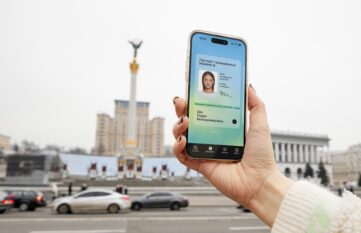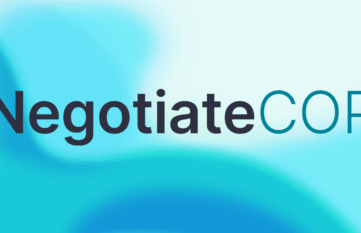Recently, the German government presented its strategy for international digital policy. The Federal Ministry for Economic Cooperation and Development (BMZ) has been very actively involved in this process – some may ask: What is the role of the Ministry of Development for the international digital strategy?
Quite a lot! As the Federal Ministry for Economic Cooperation and Development, we are the department that brings the grey theory of the strategy to life in our partner countries around the world. We make sure that the digital transformation becomes part of everyday life – and, above all, that it improves people’s lives. It was important for us to include the voice of the Global South in the international digital strategy. But first and foremost, it is a success in itself for us to think outside the box when it comes to digital policy and to have an international digital strategy in Germany for the first time. From the BMZ’s point of view in particular, we know that digitalisation has little tolerance for national borders – it’s a bit like climate protection.
So it is good to see that we, as the Federal Government, are using this strategy to position Germany in the digital world order and understand the digital transformation as a global phenomenon – beyond national perspectives. Digital transformation offers great opportunities for economic development and the achievement of sustainable development goals – but it also brings with risks such as state surveillance, disinformation, increased dependency and inequality. With this strategy, the German government is responding to this dichotomy and addressing global challenges such as the digital divide – especially between men and women, as well as current controversial topics such as artificial intelligence, digital public goods and the compatibility of digitalisation and sustainability. Most importantly, it addresses the question of how we can maintain an open, free and secure internet.
Powerful words, but what exactly can the BMZ contribute? Do national interests not sometimes hinder the goals of development cooperation, especially in the area of digitalisation?
Digital transformation repeats old stereotypes: some are far ahead – because they have the money and the resources – and others are left behind. In the digital age, this development is happening even faster: in Germany, we are discussing how to regulate AI effectively, while in many of our partner countries there is not even electricity all the time. And even if there is electricity, access to the internet is unaffordable or technically impossible in some regions. These gaps shouldn’t be allowed to grow; they need to be narrowed, and fast – for our own sake! That is why we have been working with our partners for years to promote a fair and sustainable digital transformation worldwide. And it may come as a surprise, but we Germans are really good at driving a digital transformation and we are highly valued partners internationally.
One of many examples is our GovStack initiative. This initiative provides free building blocks that can be used to customise various digital government services. Sounds complicated, but it’s crucial for basic functions like identity management: if my state hasn’t registered me anywhere, I don’t exist in its eyes. In other words, no birth certificate, no passport, no access to healthcare or welfare. This is where GovStack and our off-the-shelf modules can help – significantly speeding up and simplifying the development of digital services. Meanwhile, administrations in Germany are also interested in this project. This is our goal: we want to reduce dependencies and promote solutions that are based on mutual benefits, such as digital public goods, for example. We believe that Germany, other European countries and our partner countries must work together to ensure that everyone benefits from digitalisation.
As you have already mentioned, AI is a current topic – also in the international digital strategy. So how does development cooperation address the topic of artificial intelligence?
I can confidently say that we at the BMZ recognised the potential of AI much earlier than many other ministries. In terms of development policy, we see AI’s potential primarily in climate protection and sustainability. Artificial intelligence can, for example, derive appropriate recommendations for irrigation, cultivation methods or fertilisation of agricultural fields. Another example is from our work in Uganda: together with the AI company Sunbird AI, we have developed an AI-basedthat uses satellite images to recommend locations for renewable energy sources. In rural areas of Uganda, around 90 percent of the population has no access to electricity! If a village has a reliable supply of solar energy, shops and businesses can stay open longer. This means, for example, that a restaurant owner can extend her opening hours and significantly increase her income.
The “AI” in “fair” of the BMZ/GIZ initiative FAIR Forward stands for artificial intelligence and aims to promote fairer access to AI technologies. What does that mean in concrete terms?
Try communicating with Alexa, Google Assistant or Siri in a local African language – all three will politely reply that they don’t understand you. This may sound annoying at first – but missing language datasets are a major hurdle when it comes to using AI. Yet voice assistants offer huge opportunities, for example for illiterate people who can also write on a smartphone.
With our FAIR Forward initiative, we are starting with the basics of AI – the data used for training: We support the creation of local datasets, which we make available to everyone as a public good. For example, the language dataset we funded in Kinyarwanda, Rwanda’s national language, was the basis for an app developed in record time in the middle of Corona, which citizens could use to get information about Corona via chatbot and SMS.We are very proud to have funded language datasets for around 150 million native speakers so far!
So a brave new world thanks to AI? Or do you also see risks?
Of course, and they should not be underestimated. Take disinformation, for example. AI can be a powerful tool to mislead or manipulate people with everything from false reports to deceptively real deepfakes. Democratic societies face real challenges as a result! And there are other risks. AI can further widen the digital divide with the Global North, or negatively impact on labour markets in our partner countries. More and more companies are having their AI trained by low-paid clickworkers in developing countries, while other jobs may be jeopardised by the technology. So, we are thinking about how to manage these risks while harnessing the enormous opportunities that this technology offers.
This starts with educating people about AI – on our digital learning platform atingi.org, our free and accessible courses on various topics related to artificial intelligence are among the most popular courses we offer: more than 80,000 people have already taken them. Another aspect of our work with FAIR Forward is advising governments. Our partner governments come to us and ask: How can we regulate AI sensibly?
Of course, this is also an exciting question for us, which has now been given a new basis with the EU AI Act. We are committed to taking a holistic view of AI. To do this, we are bringing together civil society, governments, start-ups, and small and medium-sized enterprises to the table. For example, at the AfricAI conference, we brought together more than 270 AI experts from 27 countries across Africa and Asia at the AfricAI conference to discuss practical AI policy issues And at the Hamburg Sustainability Conference in October 2024, initiated by BMZ, we are working with UNDP, the United Nations Development Programme, to highlight how responsible AI can contribute to greater sustainability. So it’s certainly not a brave new world – but we’re confident that we can use AI to make the world a little better, and change the lives of millions of people for the better.



